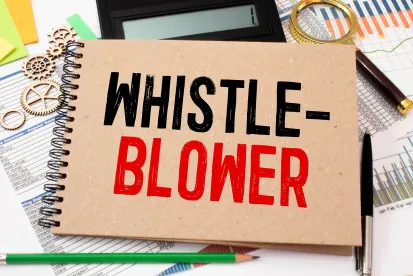The United States Supreme Court has ruled in an 8-1 decision that the U.S. government has broad authority to dismiss whistleblower actions over the individual whistleblower’s objections so long as the government intervenes under the False Claims Act (FCA) at some point in the case. The Court also held that the standard lower courts should apply to such a motion is the rule generally governing dismissal in civil suits – Federal Rule of Civil Procedure 41(a). United States ex. rel. Polansky v. Executive Health Resources Inc., 599 U.S.____ (2023).
Polansky was a lawsuit arising under the FCA, also called a whistleblower lawsuit or “qui tam” action. The purpose of the FCA is to impose civil liability on anyone who misappropriates government assets by knowingly submitting false claims to the government.[1] The FCA is unique in that it permits private parties (whistleblowers, called “relators” in the statute) to sue on the government’s behalf. The FCA incentivizes whistleblowers to litigate false claims by allowing them to receive up to 30% of the total recovery in the case.
FCA cases have procedural quirks that differ from normal civil lawsuits. Relevant to Polansky, the relator must first file the complaint under seal (i.e., outside the public record) and serve a copy on the government. The government then has 60 days (a period which is often extended) to decide whether to “intervene” and take the case over from the relator. If the government elects not to intervene, the relator can continue the case. However, the government remains a real party in interest in the case and may intervene after the seal period ends so long as it shows “good cause” to do so.
Like many FCA lawsuits, Polansky involved claims of Medicare fraud. The relator alleged that the respondent billing company helped hospitals overbill Medicare by essentially charging inpatient rates for outpatient services. The government initially declined to intervene, and thereafter the case spent years in discovery. Mounting discovery obligations and privilege issues facing the government caused it to conclude that the burdens of the lawsuit outweighed its value. So the government, without intervening, filed a motion to dismiss the lawsuit over the relator’s objection. The government relied on a provision of the FCA permitting the government to dismiss the action notwithstanding the relator’s objections so long as the relator received notice and an opportunity to be heard. The district court granted the government’s request for dismissal, the relator appealed, and the Third Circuit affirmed.
Polansky posed two main questions for the Supreme Court: first, does the government need to intervene first for the FCA action to be dismissed over a relator’s objection, and second, what legal standard applies to the government’s motion to dismiss in this context? In an opinion written by Justice Elena Kagan focusing closely on the text of the FCA, the Court agreed with the relator on the first question, finding that the government must first intervene to seek dismissal. The Court disagreed with the government’s argument that it could move to dismiss at any point, even if it never formally intervened.
As to the second, and arguably more impactful, issue, the Court found that dismissal is governed by Rule 41(a). The government had argued for “essentially unfettered discretion to dismiss,” while the relator had argued for a “complicated form of arbitrary-and-capricious review, with a burden-shifting component.”
Rule 41(a) provides in relevant part that “an action may be dismissed at the plaintiff's request only by court order, on terms that the court considers proper.” Because the FCA is involved, the Court also found that there are two differences from a “normal” Rule 41(a) voluntary dismissal. First, the FCA requires notice and an opportunity for a hearing before dismissal can take place. At this hearing, the interests the Court is likely to consider will include the relator’s, since the relator may have invested significant time and resources in the case. Second, however, the Court found that the government’s interest is paramount in this context given the FCA’s purpose of redressing harms done to the government, stating that “if the Government offers a reasonable argument for why the burdens of continued litigation outweigh its benefits, the court should grant the motion” even if the relator has credible arguments to the contrary. “Absent some extraordinary circumstance,” the government should prevail on a motion for voluntary dismissal under this deferential standard.
Justice Clarence Thomas authored the sole dissent, raising the issue of whether the entire FCA is unconstitutional because it permits private litigators to represent the U.S. government’s interests.
Polansky’s emphasis on the government’s broad authority to voluntarily dismiss FCA cases over relators’ objections is likely to give potential whistleblowers pause before bringing FCA cases in the future.
[1] Two weeks before deciding U.S. ex rel Polansky, the Court decided United States ex rel. Schutte v. SuperValue, Inc., 143 S. Ct. 1391 (2023), a unanimous opinion, which clarifies the scienter required by a defendant to “knowingly” violate the FCA. In U.S. ex rel. Schutte, the Court confirmed Sixth Circuit precedent that the term “knowingly” under the FCA turns on a defendant’s subjective belief — not what an objectively reasonable person may have known or believed. See id. at 1402-03.






 />i
/>i

